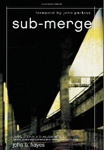 I’ve been wrestling with john b. hayes’ sub-merge: Living Deep in a Shallow World: Service, Justice and Contemplation Among the World’s Poor. Several things struck me in regard to movements and movement building. As I’ve thought thru these “new thoughts,” I wonder if Hayes has hit on some things that need more discussion–particularly within an organization like ours (Campus Crusade for Christ) which takes seriously our Lord’s Great Commission.
I’ve been wrestling with john b. hayes’ sub-merge: Living Deep in a Shallow World: Service, Justice and Contemplation Among the World’s Poor. Several things struck me in regard to movements and movement building. As I’ve thought thru these “new thoughts,” I wonder if Hayes has hit on some things that need more discussion–particularly within an organization like ours (Campus Crusade for Christ) which takes seriously our Lord’s Great Commission.
1. The Poor as a Unreached People Group
Hayes argues that two-thirds of the world’s human beings live in poverty or hover close to it, yet only a small fraction of Christian workers actually go to live and work among them. Most First World missionaries are unprepared for and unaccustomed to the pressing level of poverty–particularly urban poverty. Nearly 1 billion people in the world, one-third of urban residents, live in slums. And slum populations are growing faster than any other demographic sector. More than ever, seeking the welfare of the cities means means being prepared to seek the welfare of the poor.
Of course, there is lots of discussion in our circles about reaching cities–which makes sense. Yet, little of that discussion centers around the “poor” in those cities and how we will reach them–as a distinct group.
And this is the new thought to me:
How can we be serious about the Great Commission, if very little discussion surrounds seeing the poor as an unreached people group worth reaching, even though they make up 2/3rds of the world?
I realize that the poor haven’t been traditionally included in the “ethnos” category — the people/language group distinction as defined in the Great Commission passages (ie make disciples of all nations). Yet, as Hayes argues, the same kind of cross-cultural, contextualized, incarnational ministry is required to reach the poor as is required to reach other people groups.
In other words, we talk of learning a language and culture of a people group so we can do contextualized, incarnational ministry, but we rarely talk about crossing the socio-economical barrier to understand the “common realities” of the poor as a “people group.”
Yet, nearly 1 in 10 verses in the Bible speaks of the poor in some way. The poor, the widow, the orphan, the outcast, the hungry and thirsty, are central to God’s heart. And as Matthew 25 argues so clearly, Jesus wants them in his kingdom and he wants us to help get them there.
What would happen to our movement building strategies if we embraced the poor as a distinct people group worth reaching?
I wonder.
2. Simplicity as a Movement Principle
Hayes argues that “nearly every reform or period of revitalization in Church history is marked at least in part by a profound conviction to simplify lifestyle.” Now, that’s a new thought to me–simplicity as a critical characteristic of those who launch and build movements.
The commitment to renounce worldly possessions and live simply appears to be common to great movements of God’s Spirit in history. All those who like Christ are sent to the world, as Paul writes of himself and others, lived “as poor, yet making many rich; as having nothing, yet possessing everything.” Amy Carmichael lamented the anemic Christianity of her fellow missionaries when she wrote of their un-apostolic lives, “I don’t wonder that apostolic miracles have died, apostolic living certainly has.”
Leave a Reply